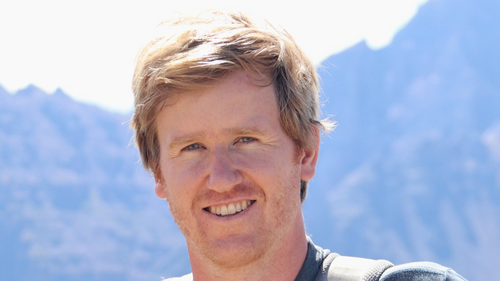
At each International Conference on High Energy Physics (ICHEP), held biennially, the International Union of Pure and Applied Physics (IUPAP) C11 commission honors two early career scientists for their excellence in particle physics.
This year, Ian Moult, assistant professor of physics and a member of Yale’s Wright Lab, and Jennifer Ngadiuba, a Wilson Fellow at Fermilab, were awarded the 2024 Early Career Scientist Prize in Particle Physics from the IUPAP.
The prize winners will receive their awards and give plenary presentations on their recent research activities at the 42nd ICHEP meeting in Prague, Czech Republic, on July 24 (https://ichep2024.org/). Each winner will receive an IUPAP medal, a certificate citing their scientific achievement, and a cash award.
According to the citation, Moult was recognized “for the invention of novel jet substructure observables which have had a direct impact on the collider physics program, and for developing new effective field theory techniques to enable high precision calculations, including in multi-prong kinematics and in subleading soft and collinear limits”.
Moult’s research focuses on developing new techniques in quantum field theory for improving our understanding of high-energy particle physics experiments.
Before joining the Yale Physics Department, Moult was a postdoctoral fellow at Lawrence Berkeley Lab/University of California, Berkeley and SLAC. He received his Ph.D. from MIT and his undergraduate degree from the University of British Columbia.
Moult previously was awarded the the Wu-Ki Tung Award for Early-Career Research on Quantum Chromodynamics and the J. J. and Noriko Sakurai Dissertation Award in Theoretical Particle Physics from the American Physical Society.
The International Union of Pure and Applied Physics (IUPAP) was established in 1922 to stimulate and facilitate international cooperation in physics and the worldwide development of science. Its 60 members are bodies and societies representing recognised physics communities around the world.

